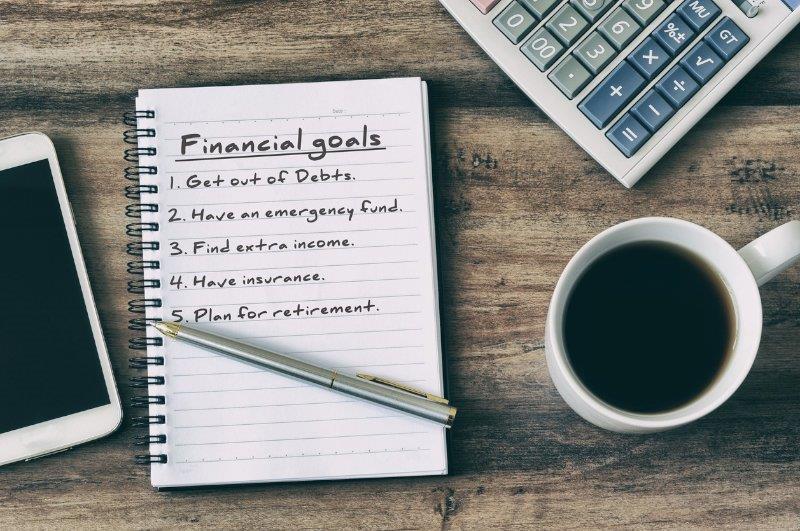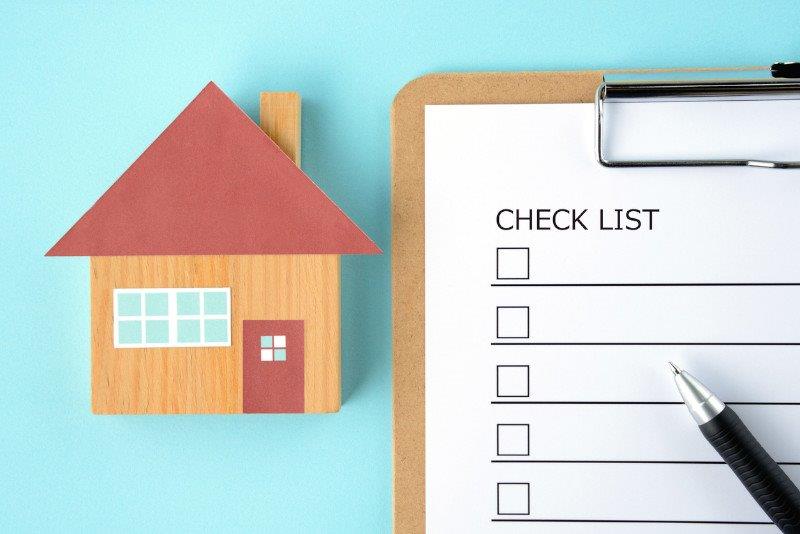Handling finances in a relationship can be a delicate and challenging task, but it is essential for the health and longevity of any partnership. Unequal pay, relationship money goals, financial compatibility, and supporting your partner financially are all important aspects to consider when navigating the financial aspect of a relationship.
The question of how much money one should have before getting married is also an important one to consider. Money imbalances can cause tension and strain in a relationship, so it’s important to have open and honest communication about finances from the start.
Whether you’re just starting a new relationship or have been together for years, understanding how to handle finances in a relationship is an important step in building a strong and lasting partnership. In this article, we will explore these topics in depth and provide practical tips and advice on how to navigate the financial aspect of your relationship.
How to Handle Finances in a Relationship

Managing finances in a relationship can be a delicate task. It is essential for the health and longevity of the partnership. For the question of how to handle finances in a relationship, it’s important to have open and honest communication about finances from the start. This includes establishing clear financial goals and understanding each other’s spending habits.
Another important aspect is maintaining separate bank accounts and credit lines, which can help to maintain financial independence and autonomy. Additionally, it’s important to have a clear understanding of the financial status of both partners, including any debts or assets. This can prevent any surprises and ensure that both partners are on the same page when it comes to financial planning.
How to Handle Finances in a Relationship With Unequal Pay
It can be difficult to manage funds in a partnership where there are unequal earnings. It is crucial that from the beginning, both partners have direct and honest conversation about money. This entails outlining the situation’s financial facts and establishing specific financial objectives.
To best address the issue of how to handle finances in a relationship with unequal pay, it’s important that both partners have a clear awareness of their own financial requirements and create a budget that can account for their different levels of income. Making a joint account for shared spending and keeping individual accounts for individual expenses can be useful.
Furthermore, it’s critical to recognise any potential power dynamics brought on by unequal remuneration and to collaborate to forge a fair and equitable partnership. This may entail deliberating and putting into practise strategies.
How Do You Protect Yourself Financially in a Relationship?
Protecting yourself financially in a relationship is crucial for maintaining financial stability and independence. But how do you protect yourself financially in a relationship? One way to do this is by setting clear boundaries and having open and honest communication with your partner about money. This includes setting individual financial goals and discussing how they align with the goals of the relationship.
Another important step is to maintain separate bank accounts and credit lines. This allows for autonomy in financial decision making and can prevent one partner from becoming financially dependent on the other. Additionally, it is important to have a clear understanding of the financial status of both partners, including any debts or assets. This can help to prevent any surprises and can ensure that both partners are on the same page when it comes to financial planning.
Relationship Money Goals

In any relationship, it’s important to set money goals. Financial stability and success requires having clear financial goals in a relationship. It’s critical to discuss your short- and long-term financial goals openly with your partner. This might be done over a meal. cover topics like paying off debt, setting up an emergency fund, saving for a down payment on a home, and retirement planning. Sharing the same objectives not only keeps the couple on the same page, but it also makes it simpler to plan and collaborate on achieving a shared financial goal. Be reasonable, provide a schedule, and make sure the goals are measurable while formulating them.
By creating and sticking to these goals, not only do couples build a strong foundation for their relationship, but it also allows for the ability to set rewards for achieving these goals. One such reward could be a romantic getaway, a trip or vacation that the couple can enjoy together, as a way to celebrate their financial success. This can be a great way to create motivation to reach their financial goals, and to build memories that will last a lifetime.
Once goals are set, it’s important to regularly review and adjust them to ensure they are still in line with the current financial situation and priorities. By setting and working towards shared money goals, couples can build a strong financial foundation for their relationship and achieve a sense of financial security and satisfaction, while also setting rewards for achieving their goals, such as a romantic getaway.
What Do You Do When Your Partner Is Struggling Financially?
When your partner is struggling with financial matters, it’s important to approach the situation with empathy and understanding, keeping in mind that the financial discrepancy can also be embarrassing for your partner.
The first step is to have an open and honest conversation about their financial situation and not to come off as judgemental. This might be done over a meal, or on some other non-intimidating setting. This includes discussing their income, expenses, and any debts they may have.
It’s important to work together to establish a budget together and prioritize expenses based on the most pressing needs. This can include cutting back on unnecessary expenses or finding ways to increase their income. It’s worth taking into account that they might not be as far along in their career and the financial discrepancy may not be permanent. It’s also important to consider if any financial assistance can be provided, such as lending money or finding ways to support them in finding a better paying job.
Additionally, it’s important to consider how their financial struggles may affect the relationship and to work together to find reasonable solutions that both parties can contribute to. This can include discussing financial goals and creating a plan to achieve them in a cooperative way. It’s also important to be patient and understanding, as financial struggles can take time to resolve.
Overall, when your partner is struggling financially, the key is to approach the situation with empathy and understanding, have open and honest communication, prioritize expenses, provide financial assistance and work together to find solutions.
Financial Compatibility

Financial compatibility is an important aspect to consider when building a relationship. It refers to the ability of two individuals to work together and make decisions about money that are beneficial for the relationship as a whole. This includes things such as shared values and priorities, similar spending habits, and a willingness to compromise and communicate openly about money matters.
When assessing financial compatibility, it’s important to consider things such as each partner’s attitude towards money, their level of debt, and their saving and spending habits. For example, one partner may be a saver while the other may be a spender, this can lead to conflicts if not addressed and managed properly. Additionally, it’s important to have a clear understanding of each other’s financial goals and to work towards those goals together.
To ensure financial compatibility in a relationship, it’s important to have open and honest communication about money, set shared goals and work together to achieve them. By understanding each other’s financial position and priorities, couples can build a strong foundation for their relationship and achieve a sense of financial security and satisfaction.
On a broader note, there are a few things that everyone should know about their finances. Understanding both your income and your partners income and expenses and how they align with your overall financial goals will help you to plan for the future. Knowing your credit score and how it can impact your financial future as well. Having a good understanding of your debt and how to manage it effectively.
By being aware of these factors, partners can be more informed about their financial situation, and can make better decisions for their financial future.
Supporting Your Partner Financially

Supporting your partner financially can take many different forms, such as making contributions to shared expenses or assisting them with debt repayment. It’s critical to realise that giving financial support involves more than simply giving money; it also involves being a partner who is sympathetic and helpful.
Supporting your spouse financially can take many different forms, such as making contributions to shared expenses or assisting them with debt repayment. It’s critical to realise that giving financial support involves more than simply giving money; it also involves being a partner who is sympathetic and helpful. This entails actions like paying attention to their financial worries, providing counsel and direction, and being willing to talk about money matters as a team.
It’s also important to be mindful of financial boundaries and to not cross them. It’s important to respect each other’s financial independence and not to use financial support as a way to control or manipulate the other person. By being supportive, understanding and respectful of each other’s financial position, couples can build a strong foundation for their relationship and achieve a sense of financial security and satisfaction.
What to Do When Money Becomes an Issue in a Relationship?
When money becomes an issue in a relationship, it’s important to address the situation head-on. The first step is to have an open and honest conversation with your partner about your financial concerns. This includes discussing your income, expenses, and any debts you may have.
It’s also important to establish a budget together, prioritize expenses and set financial goals as a couple. It’s helpful to have a clear understanding of each other’s spending habits and financial priorities. Having separate accounts for individual expenses and a joint account for shared expenses can also help to manage money in the relationship.
Another important aspect to consider is financial compatibility, as it can be a major contributor to money issues in a relationship. It’s crucial to have open and honest conversations about financial values, priorities and goals in order to build a strong and healthy financial foundation for the relationship.
Overall, when money becomes an issue in a relationship, it’s important to address the situation head-on, have open and honest communication, establish a budget, prioritize expenses and set financial goals, and consider financial compatibility.
Who Should Pay for House Repairs or Renovations in a Relationship?

In a relationship, the question of who should pay for house repairs or renovations can be a tricky one. Ideally, both parties should have a mutual understanding and agreement on how to handle these expenses. However, it’s important to consider the specifics of each situation, such as who owns the property or who is responsible for maintaining the property.
For example, if the house renovations or repairs are a result of neglect or lack of maintenance on one party’s part, it may be fair for that party to bear the majority of the cost. For example, if blocked stormwater drains caused flooding in the home, and it’s clear that one party didn’t properly maintain the drains, it would be fair for that party to pay for repairs.
On the other hand, if the repairs or renovations are for aesthetic or lifestyle reasons, such as house extensions or installing roof windows, both parties may want to consider splitting the costs equally. Additionally, if both parties have agreed to maintain the property and share the costs of any repairs or renovations, then it would be fair for both parties to split the costs.
Ultimately, the key to solving this issue is open and honest communication between both parties. By discussing the specific situation and coming to a mutual agreement, the question of who should pay for house repairs or renovations in a relationship can be resolved fairly.
How Much Money Should You Have Before Getting Married?
Supporting your partner financially is a vital aspect of a healthy relationship. It encompasses not just providing financial assistance but also being a supportive and understanding partner when it comes to financial matters. This includes active listening, offering advice and guidance, and being open to discussing financial issues as a team.
In a relationship, it’s important to have a clear understanding of each other’s financial situation and to work together to support each other. This could mean contributing to shared expenses, helping to pay off debt, or even covering expenses when one partner is going through a difficult financial situation. It’s important to remember that financial support is a team effort and not a one-way street.
It’s also important to consider the long-term financial goals of the relationship and to work towards them together. Having shared financial goals and working towards them can help couples build a strong foundation for their relationship and achieve a sense of financial security and satisfaction.
It’s also important to be mindful of financial boundaries and to not cross them. It’s important to respect each other’s financial independence and not use financial support as a way to control or manipulate the other person.
In summary, supporting your partner financially is not just about providing money, but also being a supportive and understanding partner when it comes to financial matters. It’s important to be mindful of boundaries, respect each other’s financial independence, and work together to achieve shared financial goals for the long-term success of the relationship.
Money Imbalance in Relationships

Relationship tension and strain can be brought on by financial imbalances since they can give rise to feelings of insecurity, resentment, and power disparities. Unequal compensation, where one partner earns much more money than the other, is one of the major factors contributing to money imbalance in relationships. This can create a sense of dependency on one another financially and change the dynamics of a relationship.
Poor money management, such as excessive spending, significant debt, or a lack of financial planning, is another factor in relationships where there is an unequal distribution of wealth.
If left unchecked, financial imbalances in a relationship can result in major issues, so it’s critical to address them as soon as they occur. This entails setting up concrete financial goals as a marriage and having frank discussions about money. It’s crucial to create a budget, rank spending according to importance, define financial objectives, and take compatibility into account.
Additionally, it’s important to maintain separate bank accounts and credit lines, and to have a clear understanding of the financial status of both partners, including any debts or assets, in order to prevent any surprises and ensure that both partners are on the same page when it comes to financial planning.
In summary, money imbalances in relationships can cause tension and strain, and it’s important to address them as soon as they arise. This includes having open and honest communication, establishing clear financial goals, establishing a budget and prioritizing expenses, considering financial compatibility, and maintaining separate bank accounts and credit lines.
